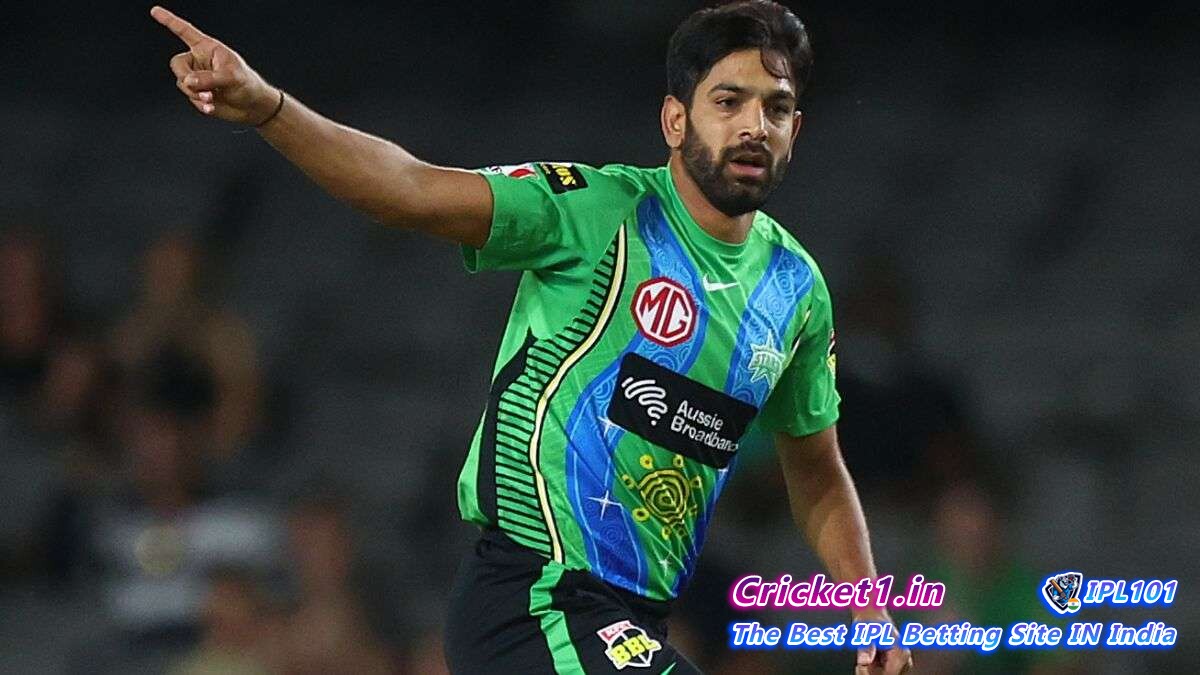
The cricketing fraternity is abuzz with developments involving Pakistan’s fast bowler Haris Rauf and his participation in the upcoming Big Bash League (BBL) in Australia. In a recent surfacing of events, the anticipation surrounding Rauf’s performance in the renowned T20 league has hit a slight snag. The Pakistan Cricket Board (PCB) is holding back on granting the blazing pacer the No Objection Certificate (NOC) required for him to join the Australian cricket carnival.
Currently showcasing his skills in the National T20 Cup for Islamabad, Rauf is bound to domestic commitments until December 10, the closing day of the tournament. This commitment is significant for the board’s delay in issuing the NOC, leaving Rauf’s Australian fans and the Melbourne Stars—the franchise he represents—on tenterhooks.
Rauf, a 30-year-old marquee player for the Melbourne Stars, has a burgeoning reputation as a formidable force in the T20 format. His allure extends beyond just cricketing prowess; his popularity has been leveraged by the Stars to capture the hearts of the Asian diaspora in Australia. The ramifications of his impending nonappearance are not trivial; they needle into the Stars’ marketability and challenge their bowling strength in the early stages of the BBL season.
A curious twist in the narrative involves Rauf’s international commitments—or the lack thereof. Recently, Wahab Riaz, the newly-appointed chief selector for PCB, implied that Rauf opted out of Pakistan’s Test tour of Australia despite initially agreeing to it. Riaz disclosed that despite assurances regarding workload management and well-being, Rauf made a late decision to withdraw, a move that sparked controversy considering the series’ significance. The chief selector was vocal about his perception of the impact of Rauf’s withdrawal, suggesting it could be detrimental to Pakistan cricket.
Riaz explained in an announcement of the Pakistani squad that the team’s physio had all but guaranteed that injuries wouldn’t be a concern. The unexpected retreat by Rauf from the Test series commitment did leave the cricket board in a lurch, fueling a narrative of uncertainty and unease within the team’s strategic ranks.
The BBL 2023-24, a spectacle awaited by cricket enthusiasts globally, will roll out its carpet on December 7, drawing cricketing stars from around the world to compete in high-octane T20 matches until the championship game in January 2024. The tournament, known for its dynamic play and electric atmosphere, will feel the absence of Rauf if the PCB further delays the issuance of his NOC.
While the cricketing network is abuzz with speculations and concerns, there are related diversions in the world of cricket that continue to engage fans. The India versus Australia T20I series commands sizable attention, alongside the Abu Dhabi T10 League’s ongoing action. Critics and commentators alike are dissecting social media behavior and fan reactions, with Pakistani legends contributing to conversations about expectations and pressures surrounding the gentlemen’s game.
As the situation develops, the Melbourne Stars and their supporters remain hopeful that the PCB will soon clear Rauf’s pathway to Australia. The Stars, a side that had earlier capitalized on Rauf’s raw pace and his growing reputation as a T20 specialist, are keen to integrate him into their scheme of things for a season promising fireworks and thrill.
With so much hinging on the board’s decision, Rauf’s delay has not only become a talking point but also a poignant reflection of the complexities and intricacies of modern cricket where the line between club and country is often blurred, and loyalty is a currency in flux. Cricket Australia, BBL enthusiasts, and the Melbourne Stars await PCB’s final word, as the clock ticks down to another exhilarating season of the Big Bash League.

